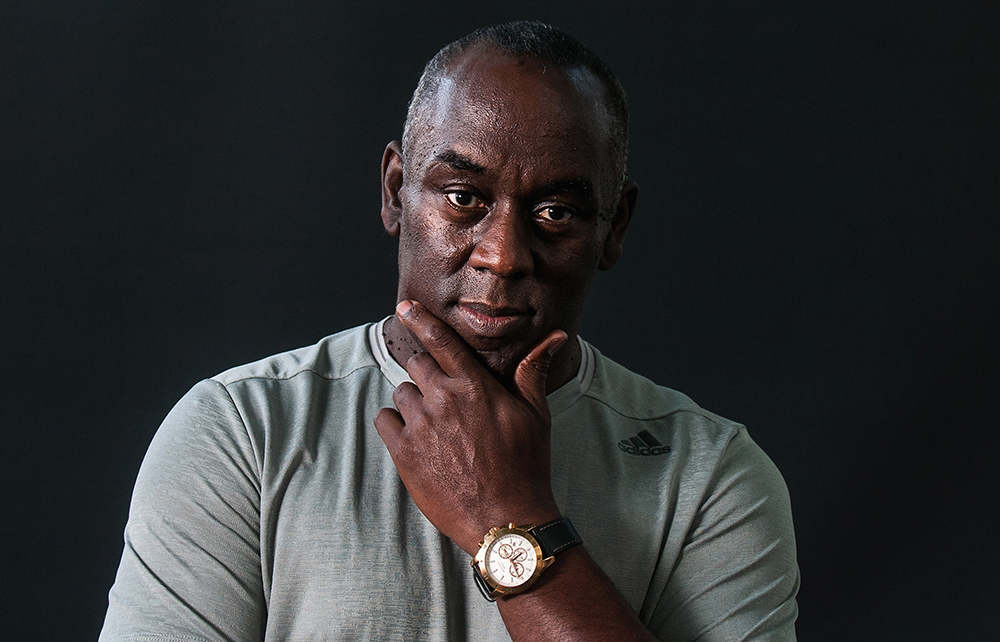In Jamaica, music is the vital expression. Night and day, amid the heat and narrow lanes of the capital, Kingston, rap, reggae, ska, dub, rocksteady, gospel and mento-calypso boom from giant loudspeaker cabinets: a joyous musical beat. Deejay-based dancehall – a digitalised reggae that Jamaicans sometimes call ragga or Yardcore – dominates the club scene and it conceivably influenced hip-hop with its turn-table-styles of delivery known as ‘toasting’ (scatting and talking over records while moving the crowds). But old-time reggae remains the musical voice of Jamaica, just as rai in the musical voice of Algeria and flamenco that of Spain. It is a trance-inducing music out of Africa.
In festively crowded rooms in south London, the ganja-heavy beat persisted into the sweaty early hours
Few know more about Jamaican music than the Brixton-born novelist Alex (‘Wheats’) Wheatle, who grew up in south London in the early 1970s when reggae first filtered into British culture with the Kingston rude boy film The Harder They Come. As a newborn, Wheatle was abandoned to social services and had no idea who his Jamaican parents were, or if he had siblings in Jamaica. (His story was dramatised by Steve McQueen in the 2020 Small Axe British Caribbean film anthology.)
Amid the hardship and predatory sexuality of the children’s homes, Wheatle found a purpose, and even a salvation, in Jamaican roots reggae. With its Garveyite back-to-Africa ideology, the music offered hope of deliverance to ‘downpressed’ British-born West Indians and fired them to celebrate a part of their heritage – Africa – that their parents had often shunned. Afro-centric reggae albums such as The Right Time by the Mighty Diamonds or Satta Massagana by the Abyssinians had a hymnal, incantatory quality and infectiously heavy bass lines that few white groups at the time could hope to emulate. (‘Don’t know what that is,’ a care home inmate says of a Tapper Zukie reggae number, ‘but it’s nothing like Status Quo.’)
Before Bob Marley mania took off in the mid-to-late 1970s, reggae was given almost no BBC radio airplay, and the British music press was not that keen either. Reggae was ‘kind of monotonous’ and ‘black music being prostituted’, Melody Maker quoted Deep Purple and the Edgar Broughton Band as saying (in 1970). In 1984, perhaps on account of its harping on the black Christ Redeemer figure of Haile Selassie or its almost Stalinist insistence on repatriation to ancestral Africa, Morrissey of the Smiths announced that ‘all reggae is vile’. In October 2007, bizarrely, British Conservatives adopted Jimmy Cliff’s electrifying hit ‘The Harder They Come’ as a Tory anthem, thus endorsing (presumably by accident) the criminal habits of the film’s ganja-pusher outlaw.
In pages of vivid, atmospheric prose, Wheatle chronicles the reggae parties he attended as a young man in basement shebeens in Ladywell, Croyden, Thornton Heath and other south London boondocks. In festively crowded rooms, the ganja-heavy beat persisted into the sweaty early hours. Ravers spent Saturday nights standing by stacked speakerboxes, dressed like Gregory Isaacs in spiffy tracksuits, with a can of Harp larger in one hand (Red Stripe came later) and a spliff in the other. Competition was fierce as music from rival sound-systems – Natty Combination, Mighty Observer, Jah Rocker – grew ever louder. Complaints from neighbours were ignored as the idea was to blow the street to ‘full watts’. The teenage Wheatle transformed by night into Yardman Irie as he scatted over reggae recordings, and threw out witty nursery rhymes and nonsense lyrics. His elegant control of language – the verbal thrusts and parries behind the mic – anticipated the work of Wheatle the novelist (Brixton Rock, East of Acre Lane).
Sufferah is a personal memoir as well as a hosannah to the glory that is Jamaican music. The book is lit up by an appreciation of the reggae labels that are now a part of Jamaican popular culture. Founded in Kingston in 1963 by the cricket enthusiast Clement ‘Sir Coxsone’ Dodd, Studio One launched the careers of, among others, the Skatalites, the Heptones, the keyboardist-songwriter Jackie Mittoo and the vocalist Alton Ellis. (With his ‘smooth vocals’, Ellis could ride over a rockers rhythm like a demon, says Wheatle.)
All was not well, though, in Brixton town. Increasingly, Wheatle was viewed by the police as a work-shy, narcotically impaired troublemaker, and was routinely arrested, beaten up and racially abused. The word ‘sufferer’ – sufferah, in Jamaican patois – is, nevertheless, overused. It’s Rasta shorthand for ‘righteous poor person’; by conferring a victim status the word implies a deficiency that cannot be overcome, and seems to me dubious. Hail up, Wheats!
In his final, wonderfully affecting chapters he travels to Jamaica and tracks down his long-absent father. Reconciliation follows; all is forgiven. Sufferah, by turns witty, tragic and, yes, righteous, is a likkle gem.






Comments